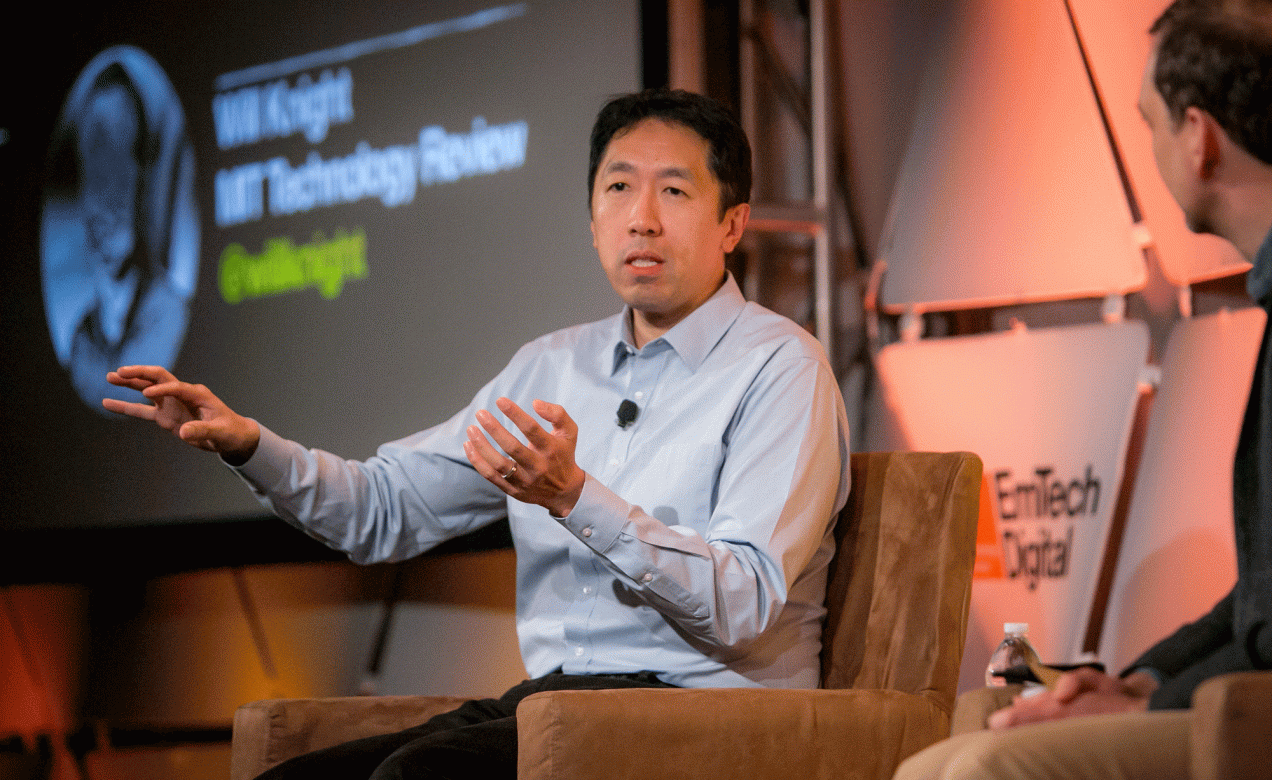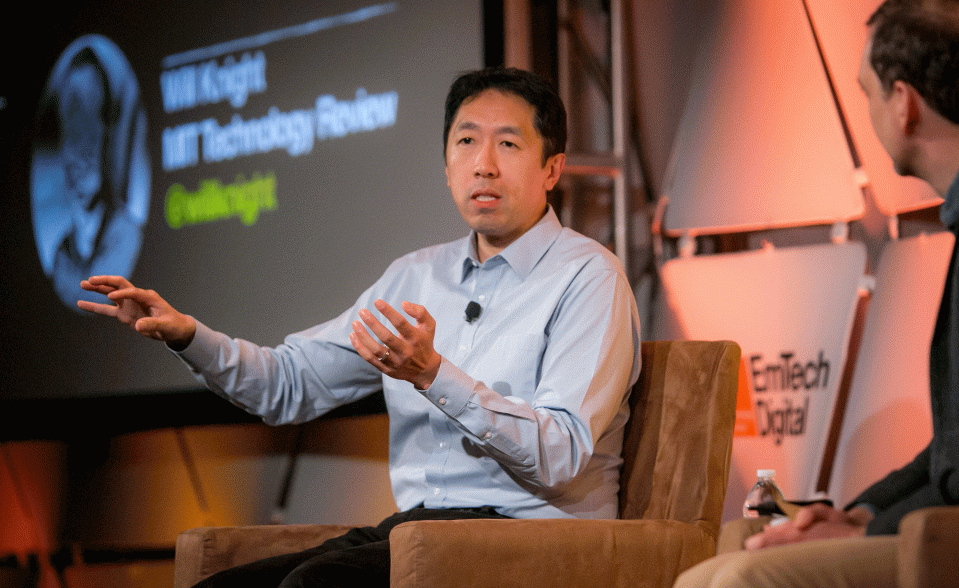

Artificial Intelligence
If you’re thinking about embracing AI: just jump in
Andrew Ng had some stirring words of advice for any businesses that might be toying with the idea of introducing artificial intelligence into how they work.

Are you a company executive who fancies adopting AI in your business, but feels overwhelmed at the prospect? Then Andrew Ng, former founder of Google Brain and chief scientist at Baidu, has some advice for you: jump in.
“It is a big journey,” he said on the EmTech Digital stage, MIT Technology Review’s annual AI conference, “but jumping in is not hard.”
Ng is now the founder and chief executive of Landing AI, a venture dedicated to helping companies without the resources and know-how of traditional tech companies to participate in the AI revolution. It is those companies outside the AI industry, such as in retail, logistics, or transportation, that stand to benefit from the increased efficiency and unlocked potential that machine-learning applications provide, Ng said. But he understands that it can be hard. “[We’re here to] help companies do a very difficult but very valuable thing,” he said.
How to jump in? Ng advises starting small. Begin with a pilot project that requires only one or two engineers; set realistic expectations for what AI can and can’t do; and focus on scoring quick wins. Not only does this strategy help an organization quickly understand what it will take to continue investing in AI, but it will also help secure buy-in from higher-level executives. The best way to succeed in AI adoption, he said, is to have support from all levels of an organization.
He drew an example from his own experience when he first launched Google Brain. In the early days of starting that team, he faced widespread skepticism within the company about the potential of deep learning. It was through initial quick wins that he built the necessary momentum to obtain more resources.
Ng also shared his excitement about future advancements in AI—and what they will mean for businesses. For example, training deep-learning models on small data sets—100 data points or less—could open AI adoption up to a lot of businesses, such as health care, that might have much less data to work with than large tech platforms.
For now, though, Landing AI is focused on the two-to-four-year time scale. “The only thing better than a huge long-term opportunity is a huge short-term opportunity,” he joked. “We got a lot of those right now.”
Advertisement